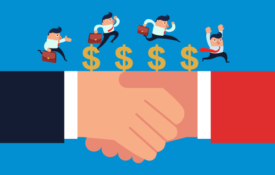-
Why Outfitting Police in Military Uniforms Encourages Brutality
APS Member/Author: Adam Galinsky As protests over the systemic brutality by law enforcement against Black Americans continue, an enduring image will be of a blue wall of police, outfitted in helmets and riot gear, prepared to stamp out would-be violence. In cities from Seattle to Boston, officers have been covered head-to-toe in battle-ready gear accessorized with batons, shields, and various firearms, appearing more suited to take on a hostile nation’s insurgents than protestors on U.S. soil. In many cases—and most prominently in Lafayette Square near the White House—initially calm police behavior transformed into aggression.
-

Stemming the Spread of Misinformation on Social Media
A simple ‘nudge’ encourages people to share more truthful COVID-19 content online. [July 2, 2020]
-

New Content From Perspectives on Psychological Science
A sample of articles on antisocial disorders, data analysis, a mindfulness model, a model of moral contagion, scientific collaboration, and social neuroscience.
-

Tempted by a Generous First Offer? Keep Your Guard Up
Recipients of generous first offers may become too trusting for their own good.
-

New Research From Clinical Psychological Science
A sample of research on text messages and suicide prevention, reminders of trauma, trigger warnings, parental vs. job burnout, and attachment representations and anxiety.
-
Five Years Ago, Love Won. Here’s How Research Helped Make That Progress Possible.
Five years ago today, the Supreme Court allowed same-sex marriage to become the law of the land when it struck down the Defense of Marriage Act, which defined marriage as between one man and one woman. It was a victory built on generations of tireless advocacy, election day disappointments, and spurts of progress across the country. One of the key elements to winning this battle was research, notably that of UCLA psychologist Evelyn Hooker. In the 1940s and 50s, when gay men could be arrested just for being gay, Hooker bucked the norms of her era and studied them like any other subject. Her groundbreaking work showed that being gay was not a mental illness. It started with a friendship.

